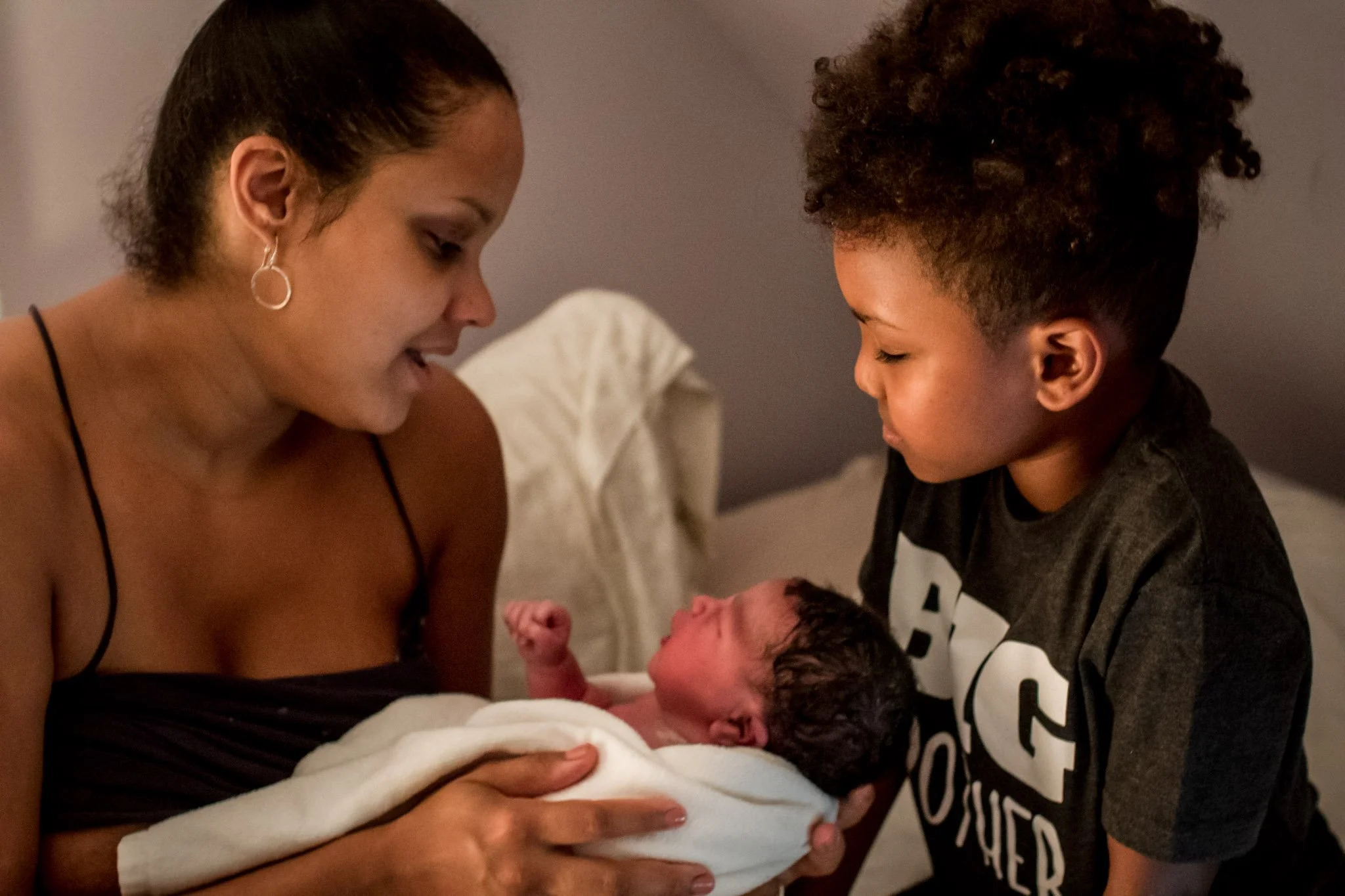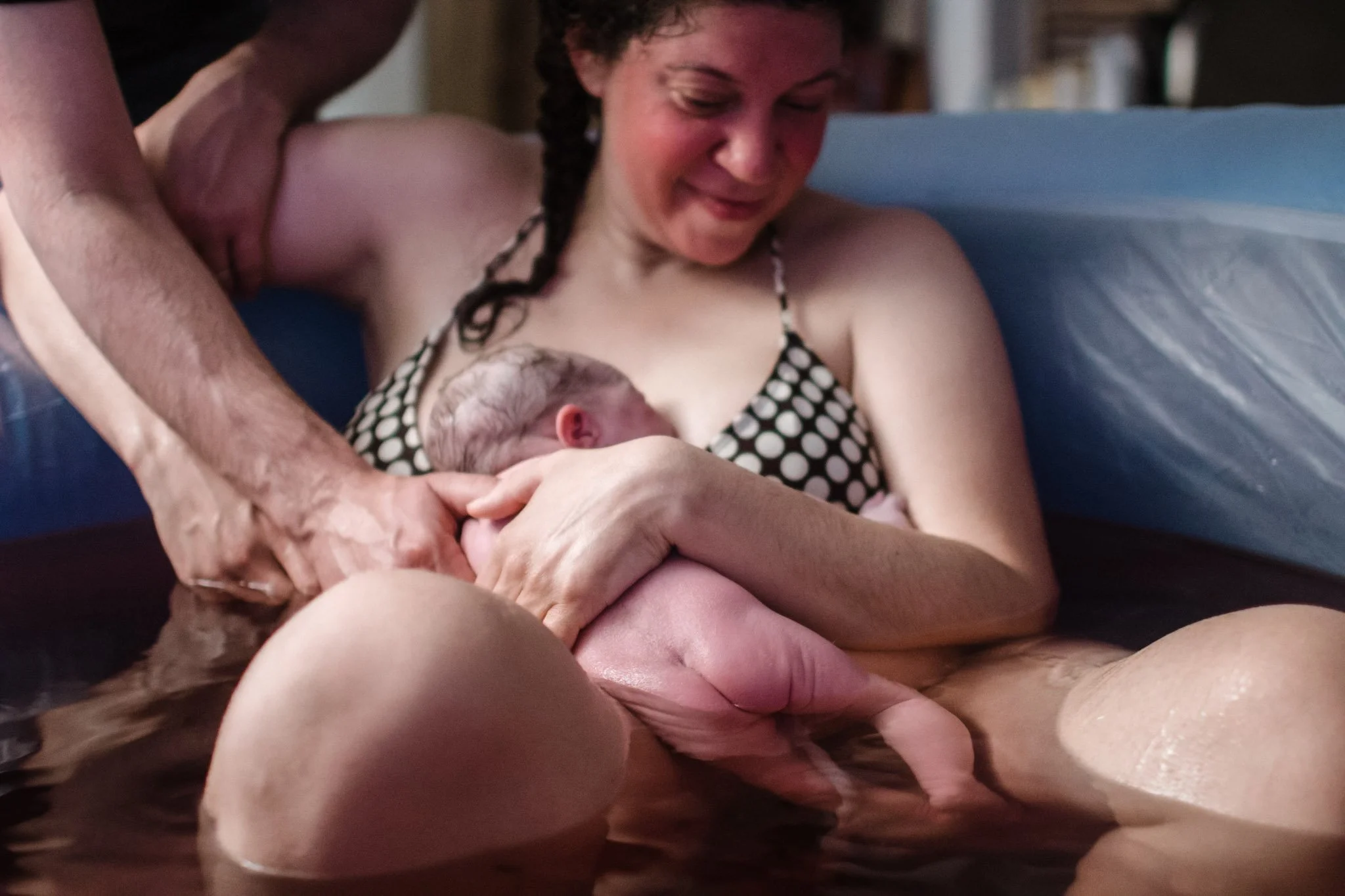Why Choose Homebirth?
Desire for a physiologic, unmedicated birth
My care is rooted in a genuine conviction that pregnancy and birth are normal life events. Pregnancy is not a disease, and birth is not a medical event. I use the wisdom of the oldest profession alongside the evidence and technology of modern medicine to support the natural physiologic process of childbirth while protecting the safety of the birthing person and their baby.
Physiologic birth is not simply a philosophical attachment to the idea of "natural" birth. Physiologic birth has been repeatedly shown to carry benefits to both parent and baby, including but not limited to reduced morbidity for both; an effective respiratory transition for the baby; less genital tract trauma/suturing; quicker physical recovery from birth; increased rates of breastfeeding; reduction in likelihood of chronic disease related to Cesarean birth or delayed breastfeeding; improved parent-infant attachment; and decreased incidence of postpartum depression.
My homebirth practice uses the biodynamic model of midwifery care, or the idea that birth is a physiologic process that can be greatly impacted by the environment in which we birth. Birth tends to progress much more smoothly when those doing the birthing are able to move as they need to, eat and drink as they desire, surround themselves with those they trust—or seek solitude—and above all to feel agency over their own bodies. Feeling secure in one's own bodily autonomy—knowing you will only be touched with consent, and that you will be honored and respected as the primary authority over your body—generally facilitates the progression of birth. In contrast, in a hospital environment, it can often feel like hospital protocol trumps the needs and desires of the birthing family.
I prioritize the comfort of the laboring person, work in tandem with their needs to keep the birth process safe, and trust that person's intuition along with my own. I offer every tool I have to facilitate a positive and healthy birth experience, but also approach each experience with humility and learn from every person I care for.
The comforts of home
Giving birth at home can be a unique, intimate, and empowering experience. Sources of stress in a hospital environment, such as lack of control over the temperature, lighting, sounds, and people who are present, disappear in a home environment. You do not have to negotiate with IV poles and wires connecting you to fetal monitoring equipment. You are in a space where you inherently feel safe rather than one you associate with illness, surrounded by familiar sights, sounds, and smells and only those you have chosen in attendance.
Partners or support people also tend to feel less marginalized in a home setting. Children can be involved if desired. The story is your own, and you have the space to follow your body’s powerful instincts to find your own best way to give birth.
Although many people focus on the actual process of labor and birth at home, it should be emphasized that truly there is nothing like the bliss of tucking into one's own bed and eating one's own food after giving birth. And as an added benefit, there is less exposure to hospital bacteria and other germs in one's own home!
Fewer interventions
As compared to care with an obstetrician in a hospital, those receiving midwifery care experience fewer medical interventions during pregnancy, labor, and birth. People cared for by midwives are statistically less likely to receive episiotomies, forceps or vacuums, and of course Cesarean births. This is at least somewhat because of the difference in paradigm: obstetricians tend to approach pregnancy and birth from an illness perspective, whereas midwives tend to view pregnancy and birth as normal, physiological processes. That is not to say that midwives do not screen for illness–they do so consistently throughout pregnancy. This continuous screening and risk assessment is what make midwifery care safe.
I see my work as a midwife to be as much about knowing when to “not do” as much as it is what to do. So much of our job is simply being present to bear witness to the strength and capabilities of the person giving birth as well as provide support and reassurance, interceding only when truly necessary.
Continuity of Care
Care based at home is a very different experience than the kind of medical care most of us have received in our lives. The homebirth model allows for the time and space for a relationship based in trust and respect to develop. Individualized prenatal visits aim to nurture the whole person: they are as much about monitoring the physical health of you and your baby as they are about your emotional and spiritual wellbeing. We will discuss in depth your questions, hopes, concerns, and any testing and treatment options relevant to your pregnancy. By the time you go into labor, I know you, your family, and what is important to you. Likewise, you can feel secure in the knowledge that a person who knows you, your family, and what is important to you will care for you during the birth. This is very different than in many hospital practices, where you will see a variety of care providers throughout your pregnancy and do not know who will attend the birth until you are in labor.
As well, I encourage my clients to call any time day or night if they have an urgent concern with their body or with their baby, and to feel free to reach out during business hours with less urgent questions between appointments. This type of support is one of the many elements of homebirth care that is far superior to what is offered through the hospital care system; there is no leaving messages in an office and wondering whether or not your provider will get back to you in a timely matter or waiting for lab results (I forward them to you as soon as I get them!).
Immediate Close Contact with Your New Baby
At home, you and your baby can adjust to this new reality in a space that is kept quiet and calm. No one is hurried, nothing is beeping, and the lights are dimmed. There is time to pause and delight in each other and to honor the enormity of what has just happened. Skin to skin contact is maintained, and you do not have to fear your baby being separated from you. Protecting these early hours promotes a good foundation for nursing and allows you and your baby learn how to work together as a team.





